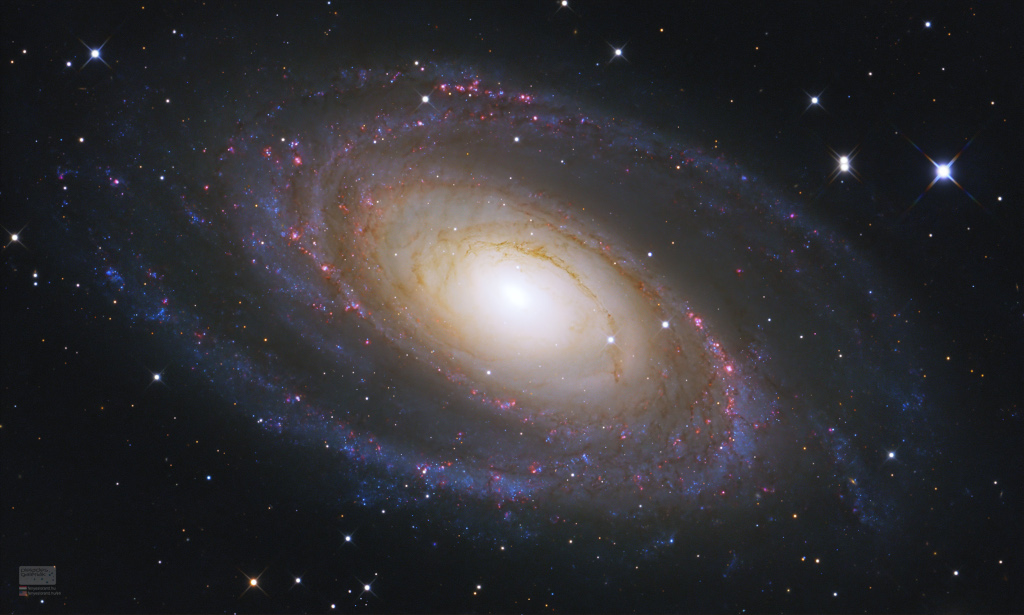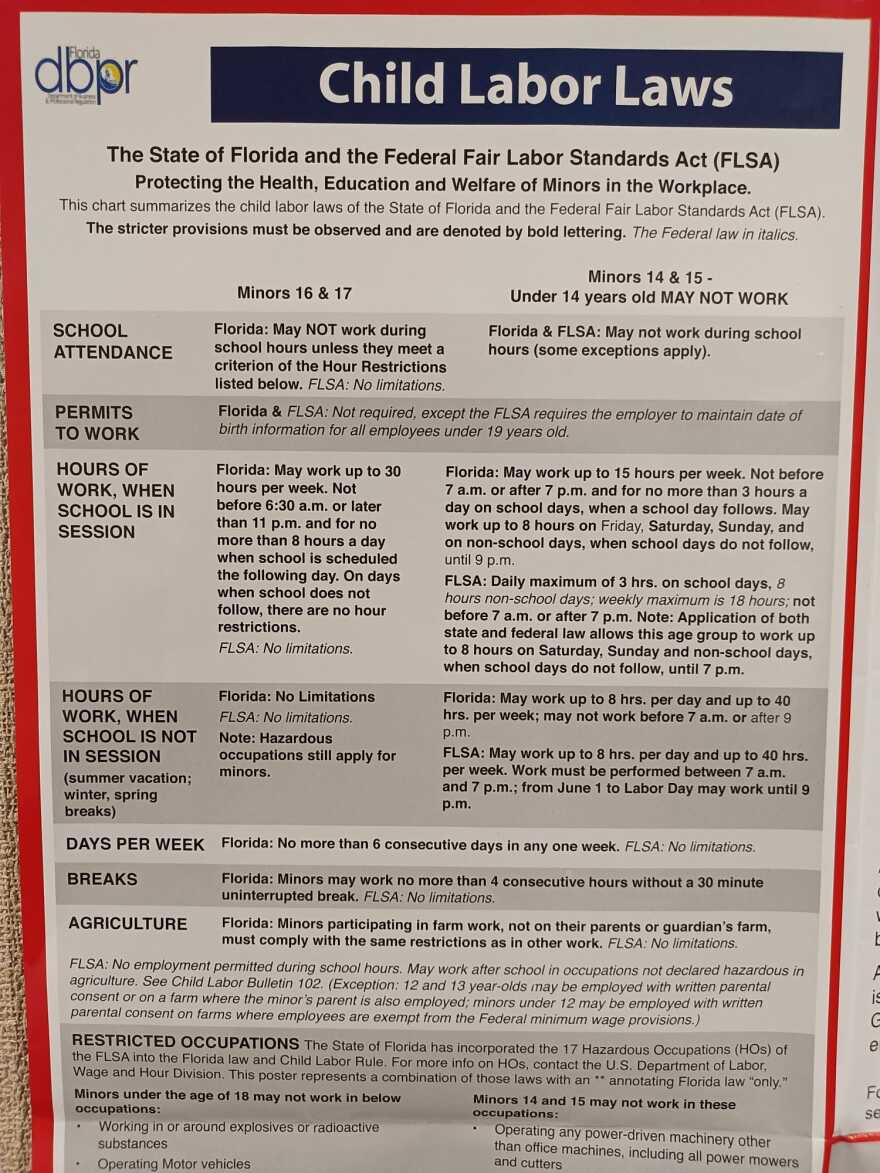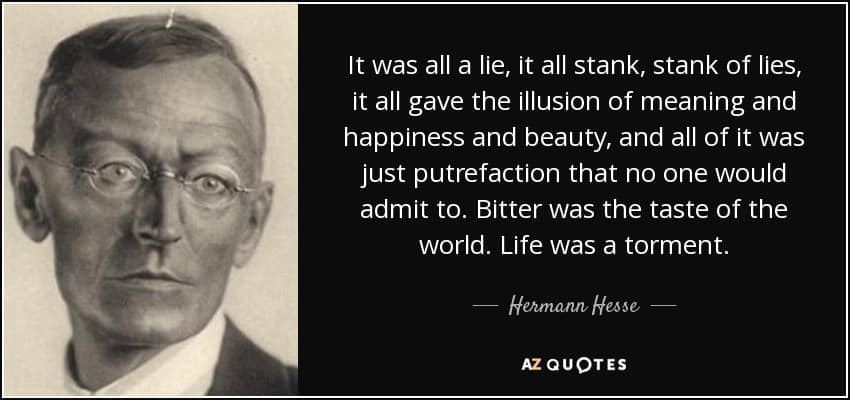Blog
Erev Shabbat service at Temple Israel Friday March 28th 2025 6pm. Music with Inbal Sharett-Singer, Jayson Rodovsky, Jeff Bailey, Pete Whitman and mick laBriola.
more...NGC 2244 (also known as Caldwell 50 or the Satellite Cluster) is an open cluster in the Rosette Nebula, which is located in the constellation Monoceros. This cluster has several O-type stars, super hot stars that generate large amounts of radiation and stellar wind.
The age of this cluster has been estimated to be less than 5 million years. The brightest star in the direction of the cluster is 12 Monocerotis, a foreground K-class giant. The two brightest members of the cluster are HD 46223 of spectral class O4V, 400,000 times brighter than the Sun, and approximately 50 times more massive, and HD 46150, whose spectral type is O5V, has a luminosity 450,000 time larger than that of our star, and is up to 60 times more massive, but it may actually be a double star. These stars do not seem to pulsate, which is in agreement with stellar modeling of stars with similar global parameters. 5,200ly.

more...
Vicenç Montoliu i Massana, better known as
Tete Montoliu (28 March 1933 – 24 August 1997) was a Spanish jazz pianist from Catalonia, Spain. Born blind, he learnt braille music at age seven. His styles varied from hard bop, through Afro-Cuban, world fusion, to post bop. He recorded with Lionel Hampton in 1956 and played with saxophonist Roland Kirk in 1963. He also worked with leading American jazz musicians who toured in, or relocated to Europe including Kenny Dorham, Dexter Gordon, Ben Webster, Lucky Thompson, and Anthony Braxton. Tete Montoliu recorded two albums in the US, and recorded for Enja, SteepleChase Records, and Soul Note in Europe.
more...Thaddeus Joseph Jones (March 28, 1923 – August 20, 1986 Pontiac, MI) was an American jazztrumpeter, composer and bandleader who has been called “one of the all-time greatest jazz trumpet soloists”. Jones left the Basie Orchestra in 1963 to become a freelance arranger and musician in New York City. In 1965, he and drummer Mel Lewis formed the Thad Jones/Mel Lewis Orchestra. The group started with informal late-night jam sessions among New York City’s top studio musicians. They began performing at the Village Vanguard in February 1966, to wide acclaim, and continued with Jones in the lead for 12 years. They won a 1978 Grammy Award for their album Live in Munich.
more...One of the brightest galaxies in planet Earth’s sky is similar in size to our Milky Way Galaxy: big, beautiful Messier 81. Also known as NGC 3031 or Bode’s galaxy for its 18th century discoverer, this grand spiral can be found toward the northern constellation of Ursa Major, the Great Bear. The sharp, detailed telescopic view reveals M81’s bright yellow nucleus, blue spiral arms, pinkish starforming regions, and sweeping cosmic dust lanes. But some dust lanes actually run through the galactic disk (left of center), contrary to other prominent spiral features. The errant dust lanes may be the lingering result of a close encounter between M81 and the nearby galaxy M82 lurking outside of this frame. Scrutiny of variable stars in M81 has yielded a well-determined distance for an external galaxy — 11.8 million light-years.

Herman “Junior” Parker (March 27, 1932 – November 18, 1971), also known as Little Junior Parker, was an American blues singer and harmonica player. He is best remembered for his voice which has been described as “honeyed” and “velvet-smooth”. One music journalist noted, “For years, Junior Parker deserted down home harmonica blues for uptown blues-soul music”. In 2001, he was inducted into the Blues Hall of Fame. Parker is also inducted into the Mississippi Musicians Hall of Fame.
more...Leroy Carr (March 27, 1904 or 1905 – April 29, 1935 Nashville) was an American bluessinger, songwriter and pianist who developed a laid-back, crooning technique and whose popularity and style influenced such artists as Nat King Cole and Ray Charles. Music historian Elijah Wald has called him “the most influential male blues singer and songwriter of the first half of the 20th century”. He first became famous for “How Long, How Long Blues“, his debut recording released by Vocalion Records in 1928.
Carr had a severe alcohol addiction. His last recording session was held in Chicago on February 25, 1935, in which the reportedly temperamental Blackwell stormed out before the session was finished and Carr recorded his final song, “Six Cold Feet in the Ground”, as a solo.
Two months after the session, and a month after his 30th birthday, he died of nephritis and was buried in Floral Park Cemetery in Indianapolis.
more...Sarah Lois Vaughan (March 27, 1924 – April 3, 1990) was an American jazzsinger and pianist. Nicknamed “Sassy” and “The Divine One“, she won two Grammy Awards, including the Lifetime Achievement Award, and was nominated for a total of nine Grammy Awards. She was given an NEA Jazz Masters Award in 1989. Critic Scott Yanow wrote that she had “one of the most wondrous voices of the 20th century”.
more...
Victor Bailey (March 27, 1960 – November 11, 2016) was an American bass guitarplayer. He was the bassist for Weather Report during their final years from 1982 to 1986, and launched a solo career in 1988. As a musician, Bailey was known for his signature scat-bass solos. Like his father, Bailey suffered from Charcot–Marie–Tooth disease for most of his adult life. As the disease progressed, Bailey began using a cane to offset his weakened legs. The weakness finally spread to his upper body, necessitating his 2015 retirement from performing and from his teaching position at Berklee College of Music. He died on 11 November 2016 in Stafford, VA, likely from complications from Charcot-Marie-Tooth disease and amyotrophic lateral sclerosis (Lou Gehrig’s disease).
more...Benjamin Francis Webster (March 27, 1909 – September 20, 1973) was an American jazz tenor saxophonist. He performed in the United States and Europe and made many recording with Duke Ellington, Billie Holiday, Johnny Hodges, and others.
A native of Kansas City, Missouri, he studied violin, learned how to play blues on the piano from Pete Johnson, and received saxophone lessons from Budd Johnson. He played with Lester Young in the Young Family Band. He recorded with Blanche Calloway and became a member of the Bennie Moten Orchestra with Count Basie, Hot Lips Page, and Walter Page. During the 1930s, he played in bands led by Willie Bryant, Benny Carter, Cab Calloway, Fletcher Henderson, Andy Kirk, and Teddy Wilson.
more...TALLAHASSEE — Teenagers as young as 14 could soon be allowed to work overnight shifts as part of an effort in the Republican-led Legislature to roll back major aspects of the state’s child labor laws.
The proposal — which moved through its first Florida Senate committeeTuesday — comes as Gov. Ron DeSantis says a younger workforce could be part of the solution to replacing “dirt cheap” labor from migrants in the country illegally.
“Why do we say we need to import foreigners, even import them illegally, when you know, teenagers used to work at these resorts, college students should be able to do this stuff,” DeSantis said last week during a panel discussion with President Donald Trump’s border czar, Tom Homan.


More Posts
- Bucky Pizzarelli
- Ofelya Hambardzumyan
- Kenny Clarke
- Dr. Hepcat
- World Music with Dorota Barová
- Daily Roots with Mike Brooks and Jah Lloyd
- Cosmos NGC 7000
- David Bowie
- Dave Weckl
- Elvis Presley
- Tampa Red
- World Music with Sinan Cem Eroglu
- Daily Roots with Kailash
- Cosmos Abell 35
- Kenny Loggins
- Eldee Young
- Sam Woodyard
- Bobo Jenkins
- Red Allen
- Chano Pozo




